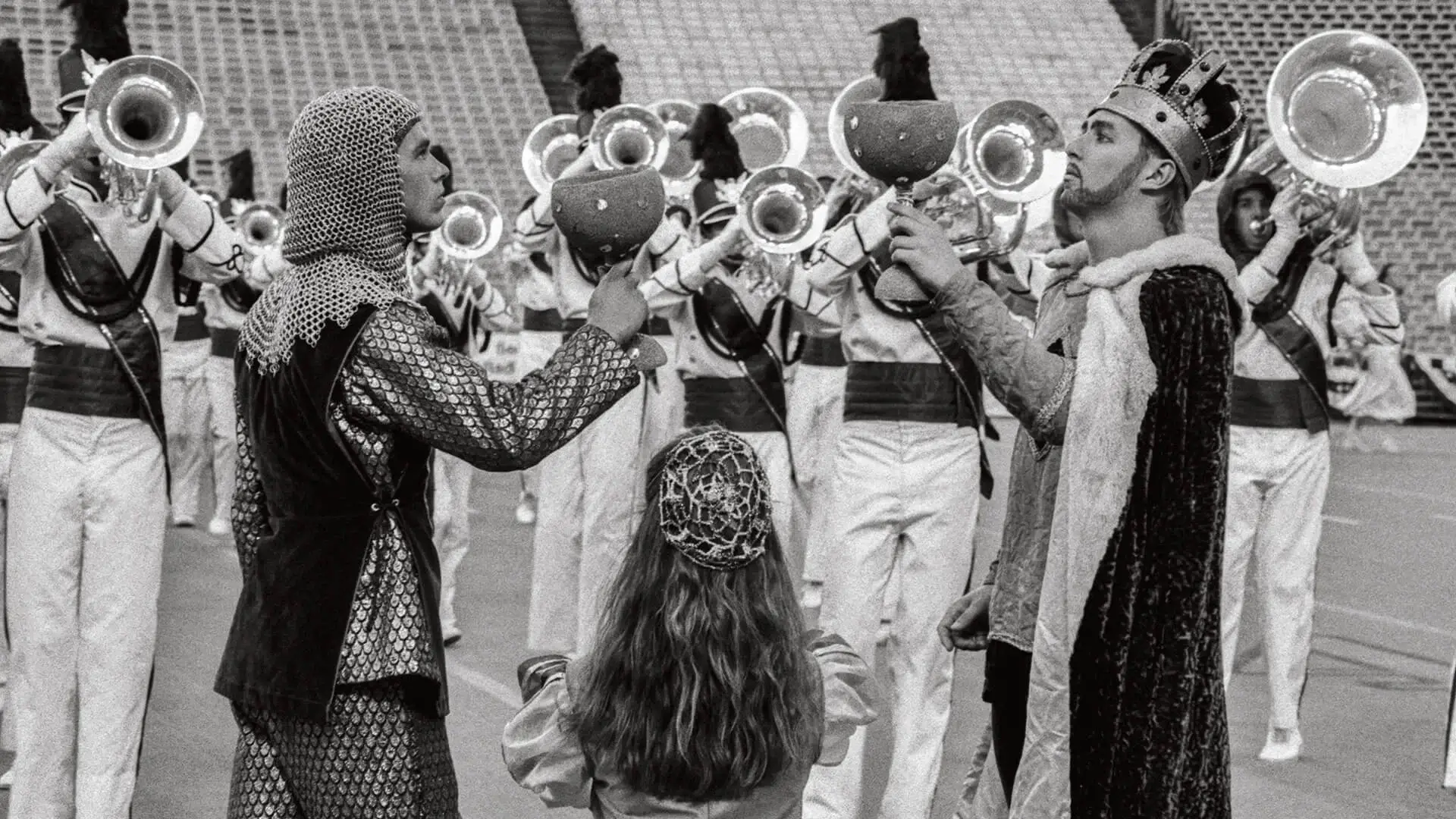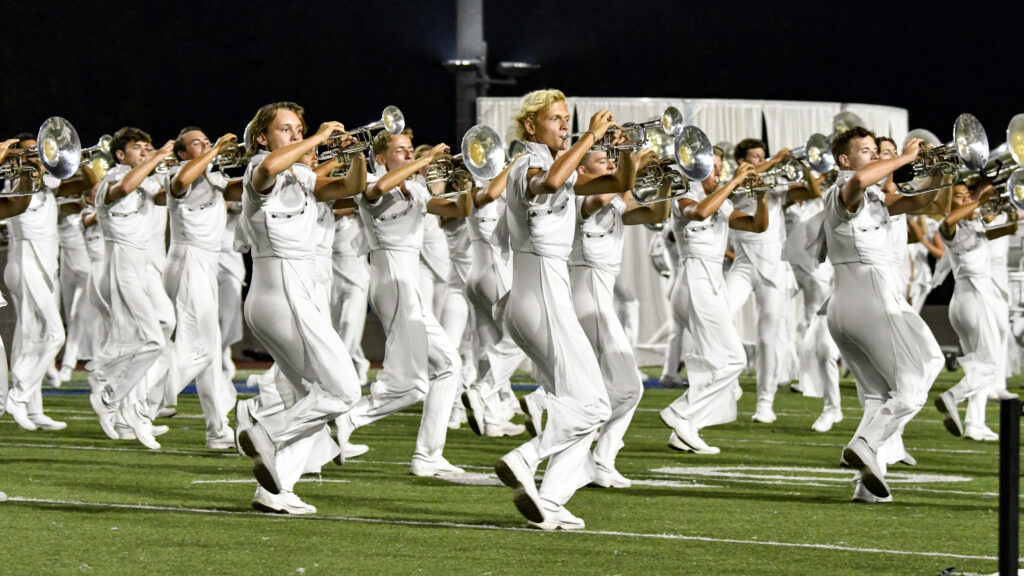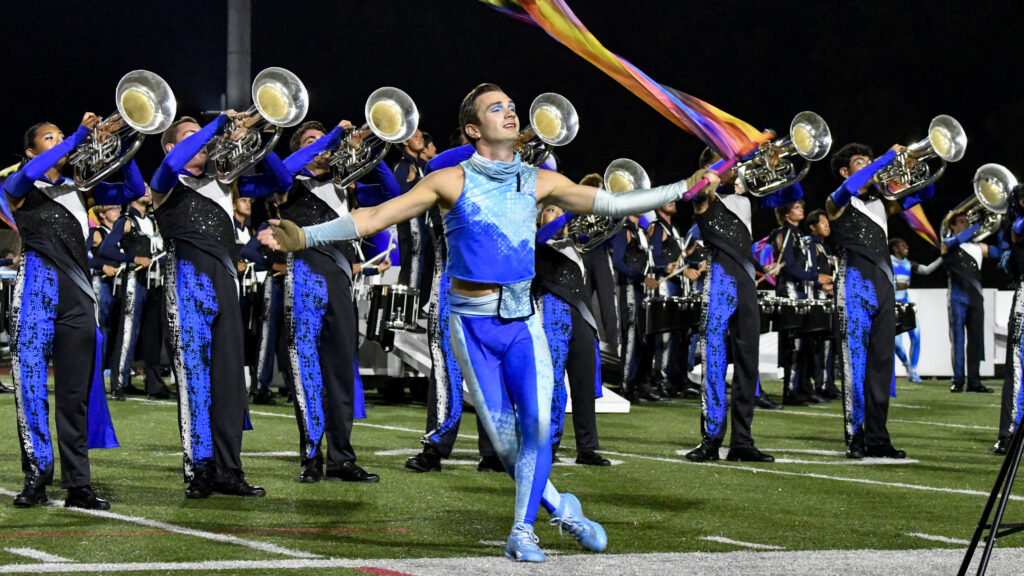The top-three placing corps at the 1991 Drum Corps International World Championships Finals at the Cotton Bowl in Dallas were all from the Midwest, with Star of Indiana taking home the trophy.
In second and third were Cavaliers and Phantom Regiment respectively, who joined Star in a three-way tie for the top score in the general effect caption. In fact, Star of Indiana didn’t win a single caption outright, also tying Blue Devils in brass and tying both Cavaliers and Santa Clara in visual.
The ninth-place Blue Knights earned a spot among the top 12 for the first time, besting Dutch Boy, Spirit of Atlanta, and Velvet Knights, three non-finalist corps that made the Finals competition the year before.
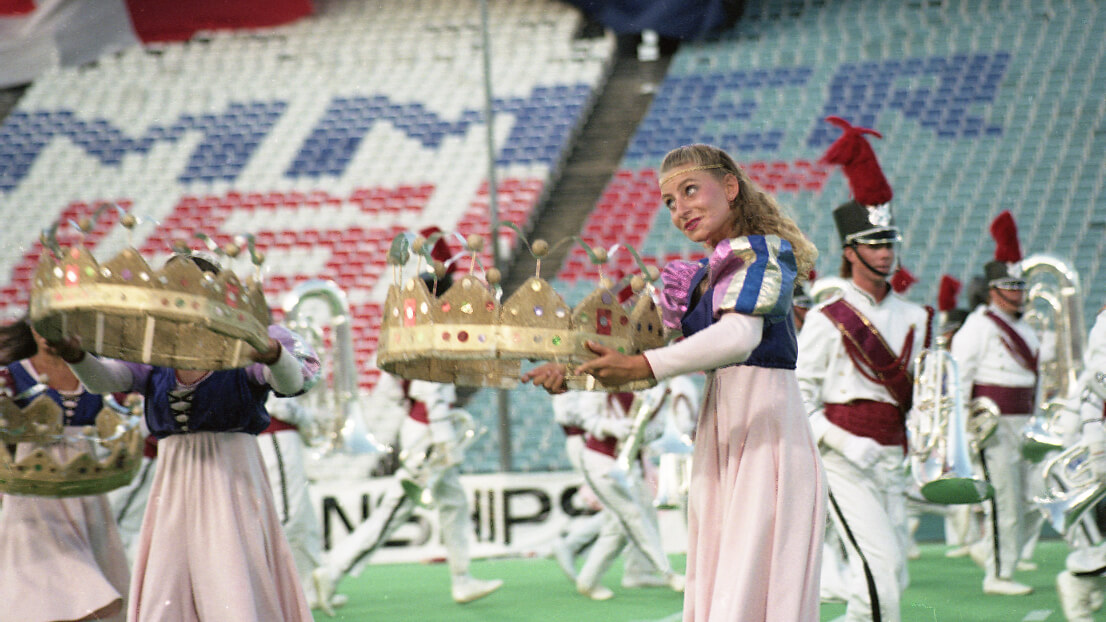
After relocating from the corps’ original hometown of Hutchinson, Kansas to DeSoto, Texas, Sky Ryders regrouped from a 19th-place finish in 1990 to get back into the DCI World Championship Finals in 1991. The corps earned a 12th-place finish with its production “Camelot.” It was based on the 1960 musical by composer Frederick Loewe and lyricist Alan Jay Lerner, which told the fabled legend of King Arthur and his court.
Loewe and Lerner’s production opened in Toronto, then moved to Broadway, where it won four Tony Awards. The cast album of the 1967 film based on the musical was America’s best-selling recording for 14 months. Still, it almost didn’t come to be.
Both Lerner and Loewe had major reservations about trying to follow up on the success of their smash hit “My Fair Lady” of 1956, which became the longest running Broadway musical up until that time. The premiere in Toronto clocked in almost two hours longer than expected, Lerner was soon hospitalized with a severe ulcer ailment, and Hart had a heart attack. But after both were well, they set to severely cutting parts of the production and turned the musical into a critical and commercial success.
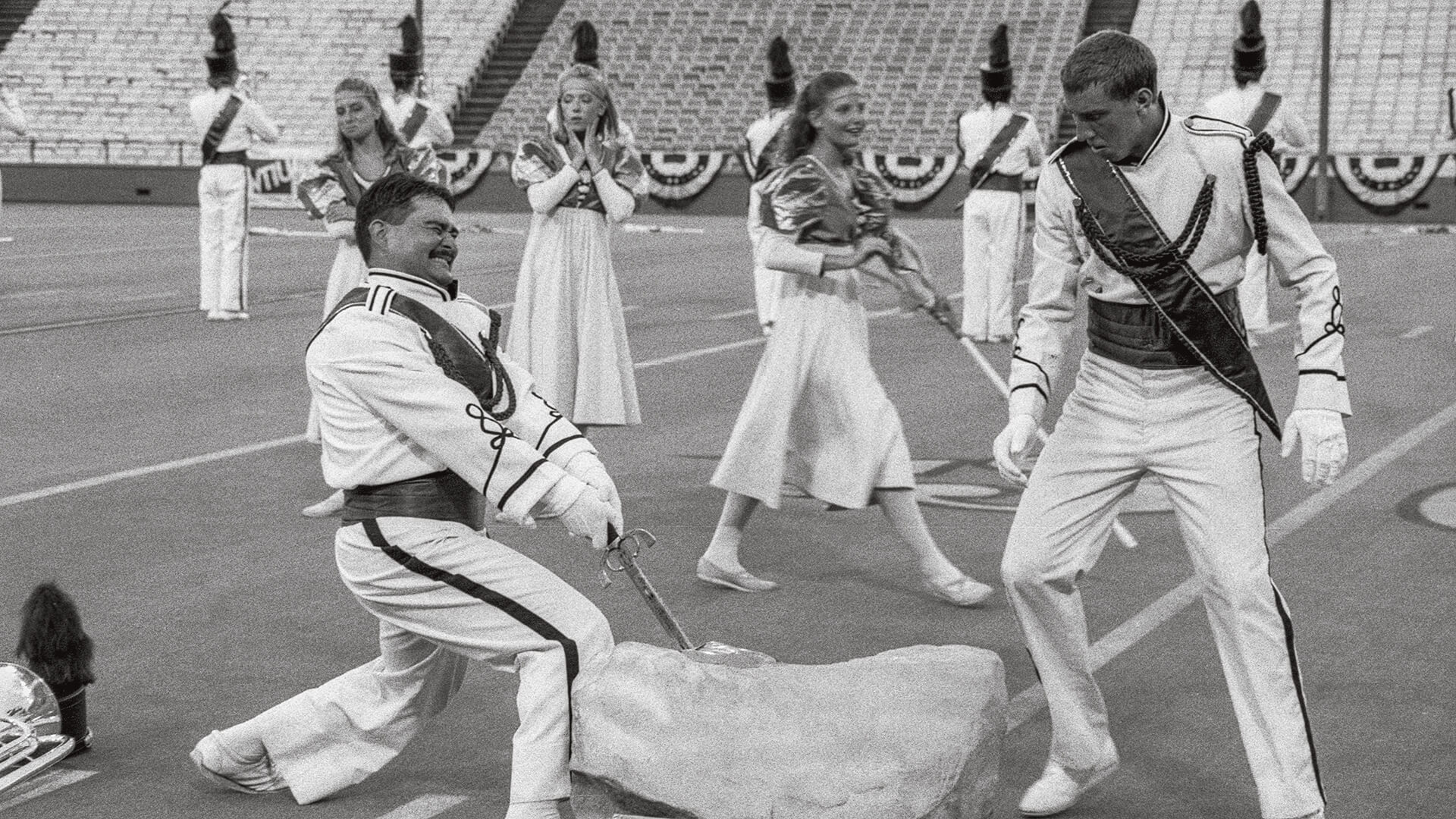
Sky Ryders’ production opened with “Fanfare Theme” from “Overture from Camelot,” showing a young lad, the future King Arthur, successfully pulling the sword Excalibur from a rock. In one famous version of how Arthur became King of England, he attained the throne by being the only one who could pull the sword from a large stone, which meant he was fated to become the one true king.
The two regal melodies quickly moved into “If Ever I Would Leave You,” the best-known melody from the musical and the ballad that gave Robert Goulet his signature theme song and made him an overnight sensation.
The females of the color guard were attired as Guinevere, Arthur’s queen who helped him establish the Knights of the Round Table order that attracted the best and most honorable men from around England and beyond. Later in the musical she fell in love with Lancelot, who came from France to become a Knight of the Round Table. Their relationship eventually brought down the idyllic Camelot.
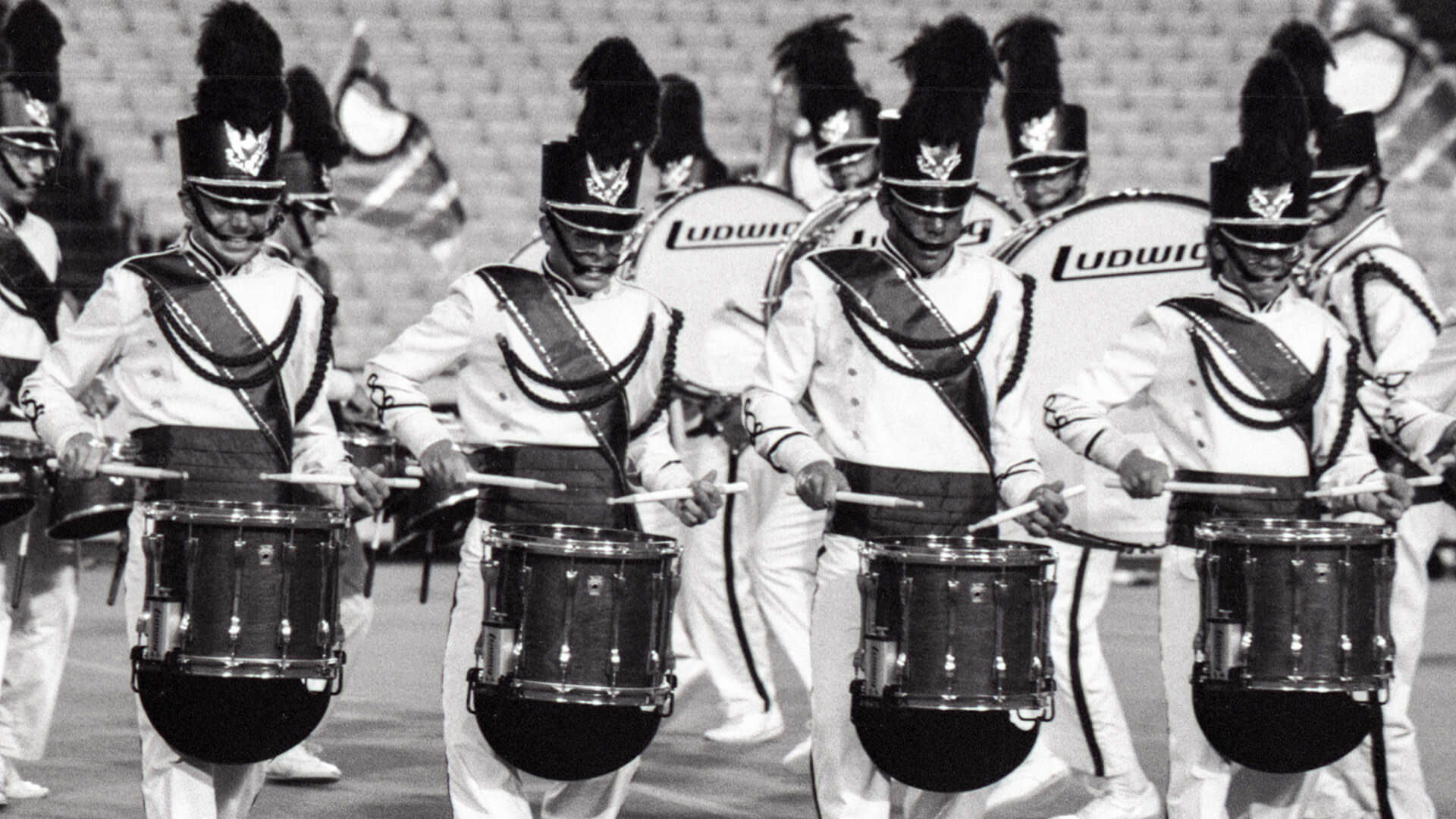
Following was the song “I Wonder What the King is Doing Tonight,” sung by King Arthur as he reflected on what his subjects were thinking. Arthur, regaled in crown and royal robe, led Guinevere to the front of the field at the start of “Parade,” also known as “The March.”
A lone snare drummer played a long roll as two bugles took turns playing a solo call introducing the king and Guinevere, who he seemed to spurn when she went to place her hand in his. A battle ensued between a knight and a cymbal player, the knight slaying his opponent.
A brief Renaissance melody segued into the march written in a ¾ time signature that followed the scene in Act I where Lancelot wounded Sir Lionel prior to miraculously reviving the fallen knight with his anguished cries. In the musical, the march in the unusual time signature led into the scene of pomp and glory where King Arthur knighted Lancelot and others, which made its way to the field with the king knighting Lancelot.
King Arthur sang “How to Handle a Woman” in the musical. This was the song the corps utilized to show the love blooming between Lancelot and Guinevere, who romantically danced with each other as the color guard members manipulated sheer shawls. The two lovers conveyed to the audience that they knew they were fated to not be together due to Guinevere’s marriage to Arthur. After a tender embrace and kiss, Guinevere departed Lancelot. With Arthur off to the side, he turned away in hurt and disgust, aware of what was transpiring.
A yell by Arthur led into the corps’ drum feature, expressing the king’s anguish. The horns circled Arthur and Lancelot, as it appeared the two would go into battle against one another, ending with the brass players forming a crown around their king.
The horns entered with dissonant, clashing chords of intense emotional conflict. A large rotating Maltese Cross re-introduced the melody of “If Ever I Would Leave You,” which brought the show to its conclusion while not resolving the struggles befallen the three main characters.
1991 Overview

Michael Boo was a member of the Cavaliers from 1975-1977. He wrote about the drum corps activity for more than 35 years while serving as a staff writer for various Drum Corps International projects. During his lifetime Boo wrote for numerous other publications including an honors-winning book on the history of figure skating. He also was an accomplished composer. Boo passed away in 2020 and was inducted into the DCI Hall of Fame posthumously in 2021.


